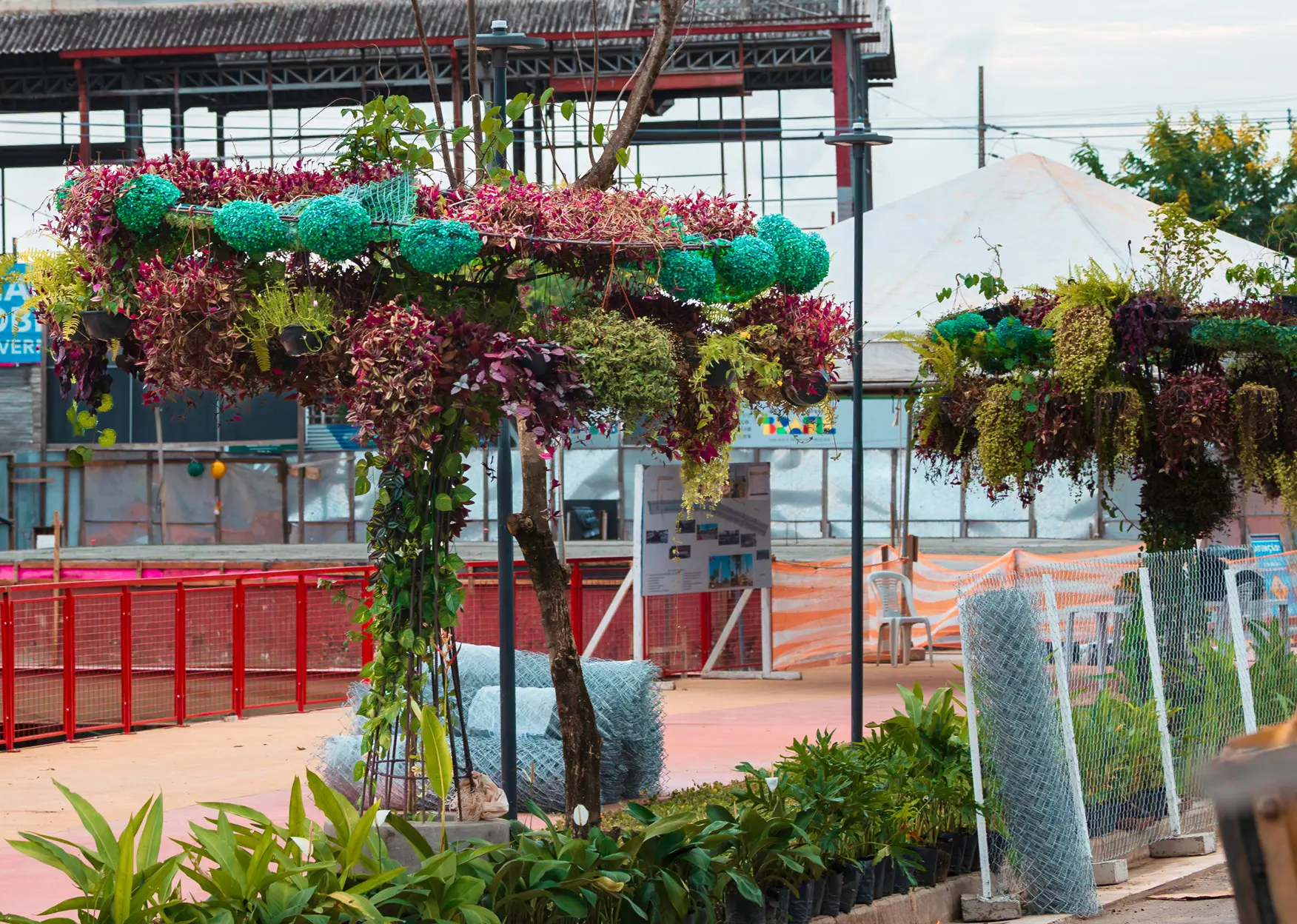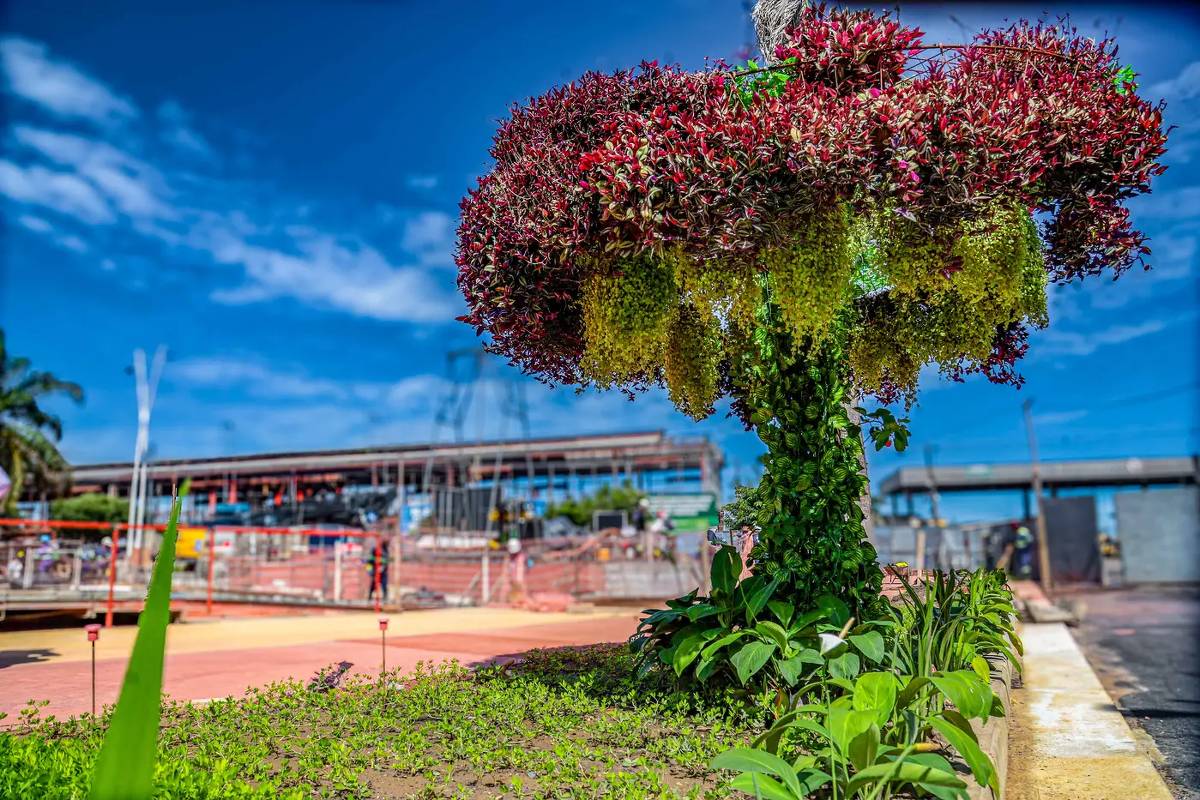Belém"s "Hanging Gardens" Spark Controversy Ahead of COP30
In a striking display of environmental contradiction, the government of Pará, Brazil, has renamed its controversial "eco-trees" to "hanging gardens" amid ongoing preparations for the 30th Conference of the Parties (COP30) to the United Nations Framework Convention on Climate Change, set to take place in Belém. This change comes in response to mounting criticism regarding the government"s environmental policies, particularly its decision to clear large areas of the Amazon rainforest to facilitate urban development in the state capital.Key Details
The term "eco-trees" was initially used by the Pará state government, led by Governor Helder Barbalho of the Brazilian Democratic Movement (MDB). However, the name was altered to "hanging gardens" after it became evident that the use of "eco" was misleading, given the significant deforestation occurring in the region. Critics argue that the government"s actions contradict the environmental goals that COP30 aims to address. Since last year, the Pará government has been involved in extensive construction projects aimed at improving infrastructure to accommodate the influx of visitors expected for the UN event. Among these projects are the construction of two new roads in the metropolitan area of Belém: Avenida Liberdade and Rua da Marinha. To make way for Avenida Liberdade, a proposal was made to clear approximately 68 hectares of land that was previously forested. In addition, nearly 35 hectares of trees were removed for the construction of Rua da Marinha. The actions taken by the Pará government have raised serious concerns about the rights of traditional populations living in the metro region. Reports indicate that these communities have faced violations as a result of the government"s urban development initiatives, which prioritize motor traffic over environmental preservation and community rights.
Image for Belém"s "eco-trees" renamed to "hanging gardens" amid COP30 controversy
Background
The COP30 conference is a significant event in the global environmental calendar, bringing together representatives from various countries to discuss strategies for combating climate change. The Amazon rainforest, often referred to as the "lungs of the Earth," plays a critical role in regulating the planet"s climate and biodiversity. However, deforestation in the region has accelerated in recent years, driven by agricultural expansion, logging, and infrastructure development. Governor Helder Barbalho"s administration has faced backlash not only for the deforestation associated with the road projects but also for the broader implications of these actions on the environment and local communities. The renaming of the "eco-trees" to "hanging gardens" is seen as an attempt to mitigate public relations fallout rather than a genuine commitment to environmental sustainability.What"s Next
As preparations for COP30 continue, the actions of the Pará government will likely remain under scrutiny from environmental activists, indigenous rights groups, and the international community. The ongoing deforestation and urban development projects could undermine the conference"s objectives, which aim to promote sustainable practices and protect vital ecosystems like the Amazon. The situation in Belém serves as a critical reminder of the challenges faced in balancing urban development with environmental conservation, particularly in regions that are home to some of the world"s most important natural resources. As previously reported, similar situations have arisen globally, where development initiatives clash with environmental protections and the rights of local populations. As the world watches the developments leading up to COP30, the implications of Pará"s actions may resonate far beyond Brazil, influencing discussions on climate policy and sustainable development worldwide.
Image for Belém"s "eco-trees" renamed to "hanging gardens" amid COP30 controversy



![[Video] Mount Etna erupts in Sicily, lava reaches 400 meters, yellow alert issued](/_next/image?url=%2Fapi%2Fimage%2Fthumbnails%2Fthumbnail-1766917884234-2sqn18-thumbnail.jpg&w=3840&q=75)
![[Video] Hawaii's Kilauea volcano erupts, fountains reach 70 ft, USGS reports](/_next/image?url=%2Fapi%2Fimage%2Fthumbnails%2Fthumbnail-1766574042820-tucull-thumbnail.jpg&w=3840&q=75)


![[Video] Gunfire between Iraqi security forces and Sadr militias in Baghdad](/_next/image?url=%2Fapi%2Fimage%2Fthumbnails%2Fthumbnail-1768343508874-4redb-thumbnail.jpg&w=3840&q=75)
